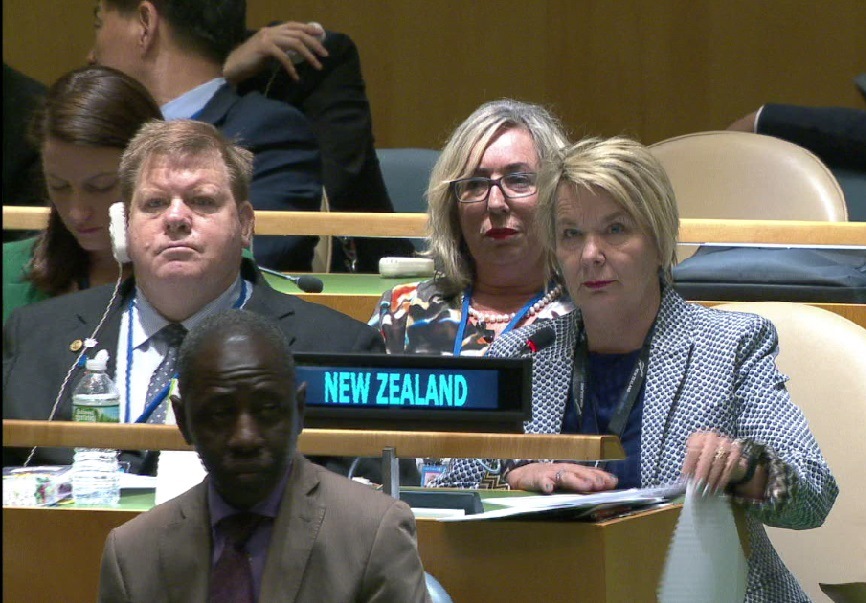Ministry Statements & Speeches:

Tēnā koutou katoa
It is a pleasure to attend the ninth Conference of States Parties to the Convention on the Rights of Persons with Disabilities. New Zealand played a key role in the development of the Convention on the Rights of persons with disabilities. We worked alongside many member states in this room and many representatives from disabled peoples’ organisations to achieve a ground-breaking human rights and development instrument.
Robert Martin, New Zealand’s candidate for the CRPD Committee, was one of those who walked the floors and poured over the draft text of the Convention. He brought an important perspective as an advocate and as someone with a learning disability, and we believe the final outcome was richer as a result of his input. We hope that the spirit of inclusiveness continues and he is elected to the CRPD Committee with your support.
Chairpersons, our efforts did not stop when we adopted the Convention 10 years ago. New Zealand continues to work at the national as well as the international level to realise the CRPD’s objectives and implement its provisions. We continue to look for unique and inclusive ways to do this.
New Zealand has a cross-government approach to disability that draws together the highest priorities for action that benefit persons with disabilities. Importantly, these priorities were identified through consultation with persons with disabilities, their families and sector NGOs.
The 'Disability Action Plan' is jointly governed between representative organisations of persons with disabilities and government agencies. New Zealand uses a twin-track approach: we recognise the importance of mainstream policy and services being inclusive of persons with disabilities, while also acknowledging that for some people there is an ongoing need for specialist disability supports. This is particularly relevant when it comes to employment, which is a high priority for persons with disabilities in New Zealand and for our government.
Chairperson - we share with many other States the problem of a gap in the employment rates between persons with the persons with disabilities and the persons without disabilities. For a long time, there was a focus on the capacity of persons with disabilities to work. We have now turned that on its head. We recognise that employers also need support and information to build their confidence so they can hire suitably skilled persons with disability.
Over the last year, we have trialled a more positive approach to support in one of our cities. My target was to get 300 persons with disabilities into work. Instead, at the end of the year, 505 persons with disabilities were placed into full time sustainable employment, and in addition, 79 people found part-time jobs and 36 went into study. This trial shows that thinking differently about an old problem can get results, and I am looking forward to applying the lessons learned from this trial throughout New Zealand.
There are only positives to be drawn from this experience, social and economic, for employees and employers alike. I encourage a greater focus on promoting employment for persons with disabilities, in light of our learnings, as a key measure to reduce inequality between persons with disabilities and persons without.Chairperson, throughout my statement there has been a common theme – the engagement and inclusion of persons with disabilities. The voices of persons with disabilities were loud and clear at the development of the CRPD and they remain vital to its successful implementation, particularly at this forum. New Zealand therefore suggests that next year’s CoSP places a focus, either as the overarching theme or a roundtable, on the perspectives of and partnerships with disabled persons’ organisations for the implementation of the CRPD.
Civil society and disabled persons’ organisations play a key role and we see an opportunity at the tenth CoSP to rejuvenate partnerships and our shared ambition to realise the rights of persons with all persons with disabilities.
“Nothing about us without us” - let’s answer that call.

